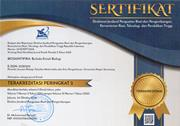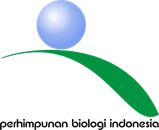Potency of Brown Sugar as a Nectar Substitute for Trichoglossus haematodus in Captivity
(1) Zoology Division, Research Centre for Biology, Indonesian Institute of Sciences
(2) Zoology Division, Research Centre for Biology, Indonesian Institute of Sciences
Abstract
Trichoglossus haematodus (Linnaeus, 1771) is nectarivorous bird that feed on nectar as a source of carbohydrate. In captivity, it is not practical to provide a continued diet of nectar from the flowers. Therefore, this study aimed to find other carbohydrate sources such as brown sugar as substitute nectar for T. haematodus. Twelve wild T. haematodus in four cages offered five types different brown sugar solution with different concentrations. Since brown sugar has low protein content, therefore the birds also  offered commercial baby biscuit  to meet the protein requirement. The results showed that the birds like to consume all types of brown sugar solution with sugar concentration up to 40% . However, the siwalan brown sugar solution was the most favored by the bird. over the other type of brown sugar solutions (aren, coconut, sugar cane and regular commercial “palm†brown sugar).  Furthermore, the result showed that the birds prefer commercial baby biscuit was soaked in the brown sugar solution with concentration 20%. This study provides the information that the brown sugar solution based diet has potency as  an alternative carbohydrate source to substitute nectar for T. haematodus in captivity which is more practical and can increase the survival rate in birds.Â
Keywords
Full Text:
PDFRefbacks
- There are currently no refbacks.

This work is licensed under a Creative Commons Attribution 4.0 International License.


